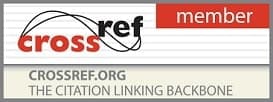P-ISSN: 2394-0530, E-ISSN: 2320-3862
2020, Vol. 8, Issue 4, Part A
Phytochemicals from Solanum surattense Burm.f. have high binding affinities for C-3 like main protease of COVID-19 (SARS-CoV-2)
Anamul Hasan, Rahat Al Mahamud, Khoshnur Jannat, Tohmina Afroze Bondhon, Be-nazir Farzana, Mahnaz Hossain Fariba, Rownak Jahan and Mohammed Rahmatullah
Corona virus SARS-CoV-2, otherwise known as COVID-19 has created a pandemic, which since its outbreak in late December 2019, till as of June 20, 2020 has infected 8,766,741 people throughout the world and caused deaths of 462,706 persons. Any fully effective drugs or vaccines against the virus remain to be discovered. The objective of the present study was to evaluate through molecular docking studies a number of compounds present in the plant Solanum surattense regarding their ability to bind to the main protease of COVID-19 [C3-like protease or 3CLpro, (PDB ID: 6LU7)]. Molecular docking (blind) were done with the help of AutodockVina. We observed that of the thirteen phytochemicals studied, eight showed very strong binding affinities to 3CLpro and four showed moderate to strong binding affinities. Furthermore, the bindings were to the region to which the protease inhibitor N3 has been shown to bind. The high binding affinities of the phytochemicals to 3CLpro merit further studies of these compounds as potential inhibitors against COVID-19, since the protease is indispensable for viral replication.
Pages : 20-26 | 1471 Views | 292 Downloads

How to cite this article:
Anamul Hasan, Rahat Al Mahamud, Khoshnur Jannat, Tohmina Afroze Bondhon, Be-nazir Farzana, Mahnaz Hossain Fariba, Rownak Jahan, Mohammed Rahmatullah. Phytochemicals from Solanum surattense Burm.f. have high binding affinities for C-3 like main protease of COVID-19 (SARS-CoV-2). J Med Plants Stud 2020;8(4):20-26.
Related Journal Subscription
Important Publications Links






